★★★
“Much calm before the storm.”
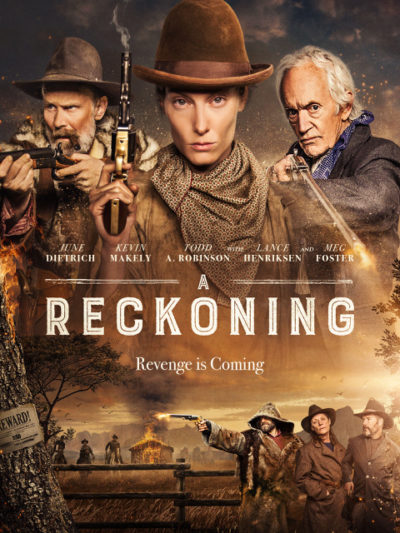 Considering how little actually happens here, I enjoyed this considerably more than expected. It kicks off with 19th-century settler Mary O’Malley (Dietrich) being informed her husband has been brutally slain. Despite the warnings of fellow settler Henry Breck (a small role for Lance Henriksen), Mary heads out on the trail through Oregon for revenge, looking for the serial killer responsible. He’s known as “Marrow” (Makely), for reasons which eventually become clear. She encounters Jebediah (Robinson), a bounty-hunter after Marrow who doesn’t appreciate the competition, and Barley (Crow), a trader who offers and receives temporary companionship.
Considering how little actually happens here, I enjoyed this considerably more than expected. It kicks off with 19th-century settler Mary O’Malley (Dietrich) being informed her husband has been brutally slain. Despite the warnings of fellow settler Henry Breck (a small role for Lance Henriksen), Mary heads out on the trail through Oregon for revenge, looking for the serial killer responsible. He’s known as “Marrow” (Makely), for reasons which eventually become clear. She encounters Jebediah (Robinson), a bounty-hunter after Marrow who doesn’t appreciate the competition, and Barley (Crow), a trader who offers and receives temporary companionship.
That’s pretty much it, up until the final, inevitable confrontation between Mary and Marrow, where we are reminded again of firearms’ role as a great equalizer. [Dietrich resembles a middle-aged version of Noomi Rapace, all slightly-built and cheekbones; Makely looks like he might have wandered out of a WWE ring] Read the reviews eviscerating this on the IMDb, and you’ll see a lot of people who appear very disappointed with the pacing and lack of action. For once, I wasn’t one of them. I was somewhat forewarned, wasn’t expecting non-stop gun battles or whatever, and was happy for this to proceed at its own, leisurely pace. I will say, it is probably not something you want to watch late at night, admittedly, as it could prove to be a little… too soothing. This likely worked much better in the Saturday afternoon slot where I viewed it, and could appreciate the landscapes as they unrolled.
It helps that the performances are mostly good to very good, with Dietrich’s performance the epitome of “speak softly and carry a big stick”. The film does a particularly solid job of setting up her character, both by her early interaction with Breck, and a subsequent conversation with Diana Maple (Meg Foster, an equally brief role as Henriksen’s), another settler who encourages and supplies Mary on her quest. However, some characters come off as slightly bland, or in Marrow’s case, over-the-top, and whenever the film is not exploring the countryside, the limited resources are painfully apparent. The “town meeting” at the start, for example, appears to take place in front of a bed-sheet, presumably intended to simulate a large tent of some kind. Given this, the amount of wilderness wandering makes considerable sense.
Lee seems to be a one-man film industry out of the Pacific North-west, with two other movies released in 2018 and two more in post-production. [Not sure I’ll exactly be chasing down Bigfoot pic Big Legend though] This one runs a relatively short 80 minutes, and is probably wise to do so. The film may not even be one to which you need to devote your full attention. The scenery is pretty, the cinematography does it justice, and the music fits in with the whole “chill out in the background” vibe. Pop your head up whenever you hear the sound of gunshots, and you’ll be fine.
Dir: Justin Lee
Star: June Dietrich, Kevin Makely, Todd A. Robinson, Kevin Crow





 Josephine “Joe” Cassidy (Eiland) is promised in marriage to Tom (Jenkins), the son of the area’s richest rancher, but her heart actually belongs to Jakob (Grasl), the Indian who is Tom’s adopted brother. The two lovers consummate their relationship when Tom is away, but the spurned fiancee hatches a long-term plan to get revenge. Years later, after becoming the local sheriff, he uses these connections to frame and execute Jakob for murder. Word of this reaches Joe, who conveniently for the plot is handy with a firearm, because her father (Cramer) was a renowned bounty-hunter, and passed on the necessary skills to her. Dying her hair red – hence the title – she sets out to take revenge on Tom, only for him to reveal that Jakob is not dead… Not
Josephine “Joe” Cassidy (Eiland) is promised in marriage to Tom (Jenkins), the son of the area’s richest rancher, but her heart actually belongs to Jakob (Grasl), the Indian who is Tom’s adopted brother. The two lovers consummate their relationship when Tom is away, but the spurned fiancee hatches a long-term plan to get revenge. Years later, after becoming the local sheriff, he uses these connections to frame and execute Jakob for murder. Word of this reaches Joe, who conveniently for the plot is handy with a firearm, because her father (Cramer) was a renowned bounty-hunter, and passed on the necessary skills to her. Dying her hair red – hence the title – she sets out to take revenge on Tom, only for him to reveal that Jakob is not dead… Not  It took me about six years after reading the series opener to get back to the adventures of one of my favorite action heroines, Seeley James’ Pia Sabel; but I only wish I’d done so a lot sooner! Some of my comments in my
It took me about six years after reading the series opener to get back to the adventures of one of my favorite action heroines, Seeley James’ Pia Sabel; but I only wish I’d done so a lot sooner! Some of my comments in my 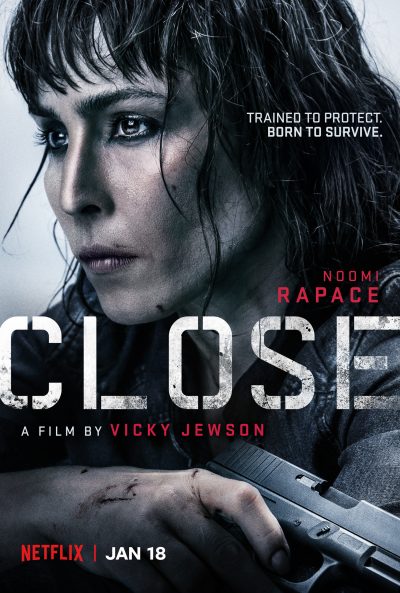 Rapace appears to be aiming for a niche in the straight-to-video (or, at least, straight to Netflix) action market, this coming on the heels of
Rapace appears to be aiming for a niche in the straight-to-video (or, at least, straight to Netflix) action market, this coming on the heels of 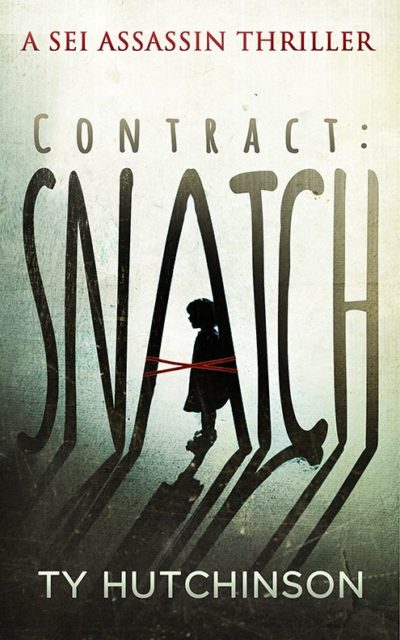 Sei is a former assassin, who quit the industry after getting pregnant, then having her daughter stillborn. She has taken up a quiet life in the Belgian countryside, when she’s brought out of retirement by a shocking offer she received over the deep web. Her prospective employer says Sei’s daughter is not dead, and offers information in exchange for carrying out a job: breaking another assassin, the notorious Black Wolf, out of the Turkish prison where he is being held. After confirming with the doctor who was present that the claim of her daughter’s survival is true, Sei accepts the mission. However, it turns out she was set up as a patsy, and finds herself also incarcerated in conditions which seem not have improved much since Midnight Express.
Sei is a former assassin, who quit the industry after getting pregnant, then having her daughter stillborn. She has taken up a quiet life in the Belgian countryside, when she’s brought out of retirement by a shocking offer she received over the deep web. Her prospective employer says Sei’s daughter is not dead, and offers information in exchange for carrying out a job: breaking another assassin, the notorious Black Wolf, out of the Turkish prison where he is being held. After confirming with the doctor who was present that the claim of her daughter’s survival is true, Sei accepts the mission. However, it turns out she was set up as a patsy, and finds herself also incarcerated in conditions which seem not have improved much since Midnight Express.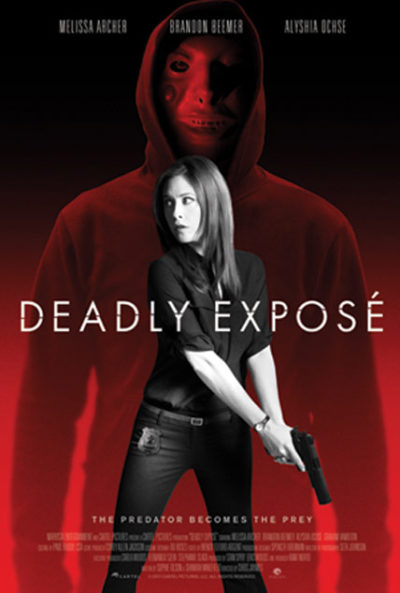 After hacktivists expose the identities of users to a dating site, someone starts targeting the victims, murdering them in ways appropriate to their particular sexual fetish. Detective Maxine Peyton (Archer) leads the investigation, but it soon becomes clear that, as well as acting as a moral judge, jury and executioner, the killer has a particular interest in and connection to Maxine. Potential suspects include over-attached boyfriend and college teacher Simon (Hamilton), her cop partner Nick (Beemer), ex-husband Ryan, or even slutty best friend, Jen (Ochise), who keeps trying to hit on Simon. Might even be e) None of the above. As the bodies continue to mount, Maxine has to find the perpetrator before he/she finds her.
After hacktivists expose the identities of users to a dating site, someone starts targeting the victims, murdering them in ways appropriate to their particular sexual fetish. Detective Maxine Peyton (Archer) leads the investigation, but it soon becomes clear that, as well as acting as a moral judge, jury and executioner, the killer has a particular interest in and connection to Maxine. Potential suspects include over-attached boyfriend and college teacher Simon (Hamilton), her cop partner Nick (Beemer), ex-husband Ryan, or even slutty best friend, Jen (Ochise), who keeps trying to hit on Simon. Might even be e) None of the above. As the bodies continue to mount, Maxine has to find the perpetrator before he/she finds her.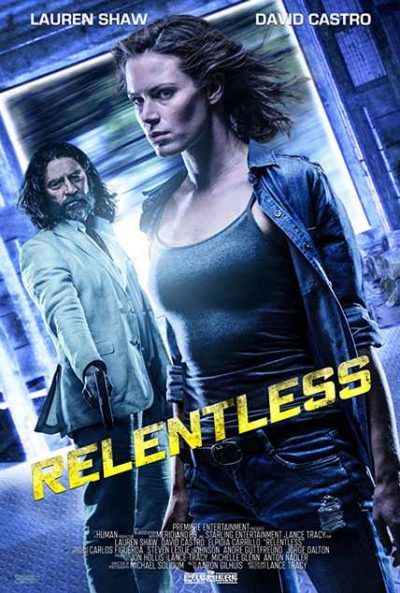 From just about all I’ve read, the director seems entirely earnest in his desire to make a serious film about a serious problem, human trafficking in Central America. That the end result falls almost entirely wide of the mark is a bit of a double-edged sword. In terms of making its intended point, that it feels more like a B-movie from the fifties is a bad thing. But on the other hand, the serious film about the serious problem would likely be considerably less amusing.
From just about all I’ve read, the director seems entirely earnest in his desire to make a serious film about a serious problem, human trafficking in Central America. That the end result falls almost entirely wide of the mark is a bit of a double-edged sword. In terms of making its intended point, that it feels more like a B-movie from the fifties is a bad thing. But on the other hand, the serious film about the serious problem would likely be considerably less amusing. Although I haven’t read much pirate-themed fiction, I find the premise interesting; so I’ve had my eye on this historical novel ever since the BC library (where I work) acquired it. It definitely didn’t disappoint! Set mostly in the early 1720s, with some stage-setting in the years leading up to those, this action-packed tale follows the life and adventures of first-person narrator Nancy Kington (b. ca. 1704), the daughter of a Bristol merchant, who finds herself packed off to the family’s plantation in Jamaica at the age of 15, and is subsequently led by circumstances to voluntarily sign articles on a pirate ship.
Although I haven’t read much pirate-themed fiction, I find the premise interesting; so I’ve had my eye on this historical novel ever since the BC library (where I work) acquired it. It definitely didn’t disappoint! Set mostly in the early 1720s, with some stage-setting in the years leading up to those, this action-packed tale follows the life and adventures of first-person narrator Nancy Kington (b. ca. 1704), the daughter of a Bristol merchant, who finds herself packed off to the family’s plantation in Jamaica at the age of 15, and is subsequently led by circumstances to voluntarily sign articles on a pirate ship. Having enjoyed the same director’s
Having enjoyed the same director’s